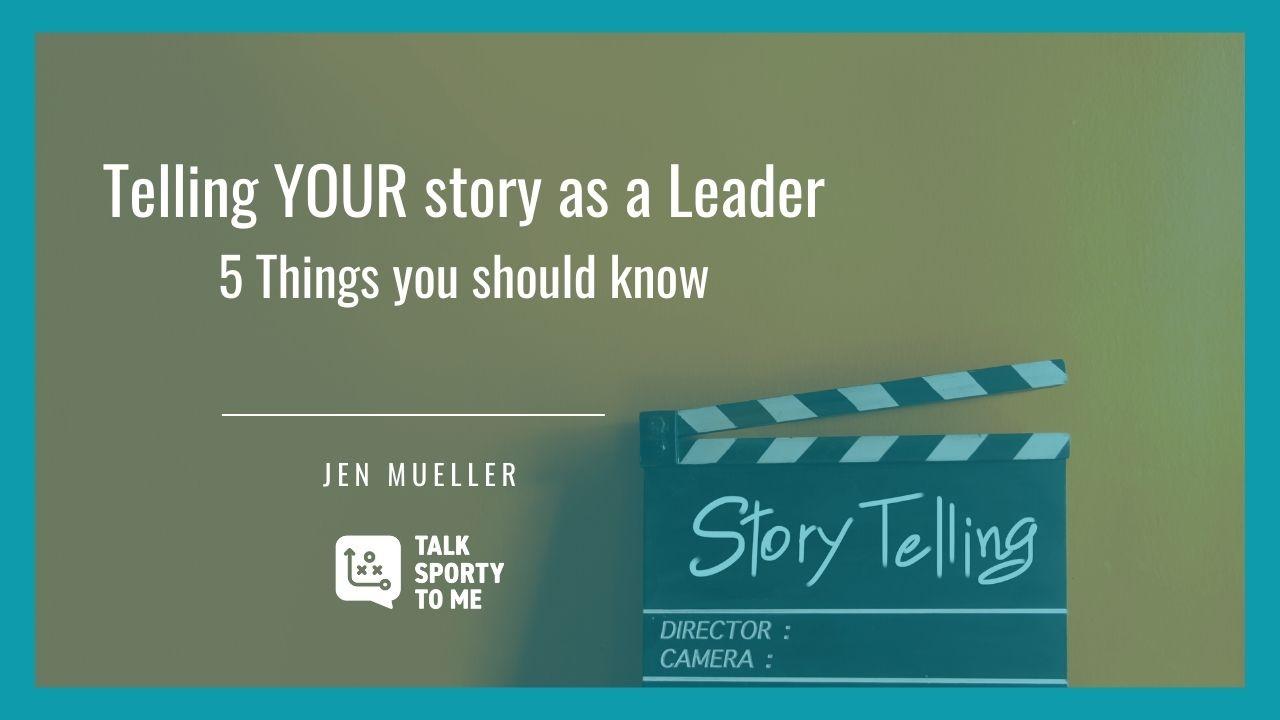Telling YOUR Story as a Leader: 5 Things you should know
Jan 29, 2020
People follow people, not plans.
Projections, plans, implementation strategies are all necessary and important for informing the people you lead, but don’t overlook the importance of providing insight on who they’re following.
That doesn’t happen by handing out your resume or talking about past success. It happens when you tell your story.
I’ll admit I’m not great at this. I’ve never felt it was important or even necessary to tell my story. What’s the point of hearing me ramble when you have your own stories and experiences to draw from?
And then after talking to a number of female leaders I realized I was looking at this the wrong way. Telling my story isn’t about me. It’s about giving others context for their stories and experiences. In other words, it’s a way of showing people they’re not alone.
Great leaders aren’t afraid to pull back the curtain and share personal stories.
And yet selling is sometimes easier than showing. Selling people on your qualifications seems like an easier task because past success can be quantified and used as proof you… are a good leader/belong at the table/are qualified to make a decision. Showing people WHO you are requires a different level of confidence, but it also leads to greater empathy, connection, collaboration and communication.
5 Things you should know in telling your own story
- You don’t have to tell your entire life story. In fact, please don’t. Oversharing doesn’t build good working relationships. Select a few experiences that shaped your career path, passion or approach.
- The best stories unfold. There’s no need to reveal everything about yourself in one interaction. Use multiple elements to tell the story. Who you are comes through in a lot of different ways, including your body language, hobbies, books you’re reading, favorite shows, etc.
- Don’t edit out your failures. The best stories follow a hero archetype, so make sure you’re the hero in your own story. No one relates to “everything went according to plan…” Be honest about failures or challenges you’ve overcome and then pivot the story to the characteristic or talent you developed as a result.
- Keep your audience in mind. Relate to where your audience is in their career. If you’re managing a group of recent college grads, make sure you meet them where they are in their careers. Identifying things you know now, but wish you would have learned earlier, or the feedback you got early in your career that you took to heart makes you relatable to that audience.
- Choose the “right” time. As a leader, you can choose any time you want, but the most natural times would be when challenges come up with your team. You can tell they’re struggling with self-doubt, learning new skill sets, fear of failure, etc. An empathic and authentic leader could share their own experience with that emotion or situation. Start a meeting with a short story or better yet prepare them to share by asking them to think about a challenge they’d like feedback on from the group.
Authentic and empathetic leaders draw people in and make it easy for their team to trust not only the decisions that get made, but the person making them. Stories make a difference. Start telling yours.





